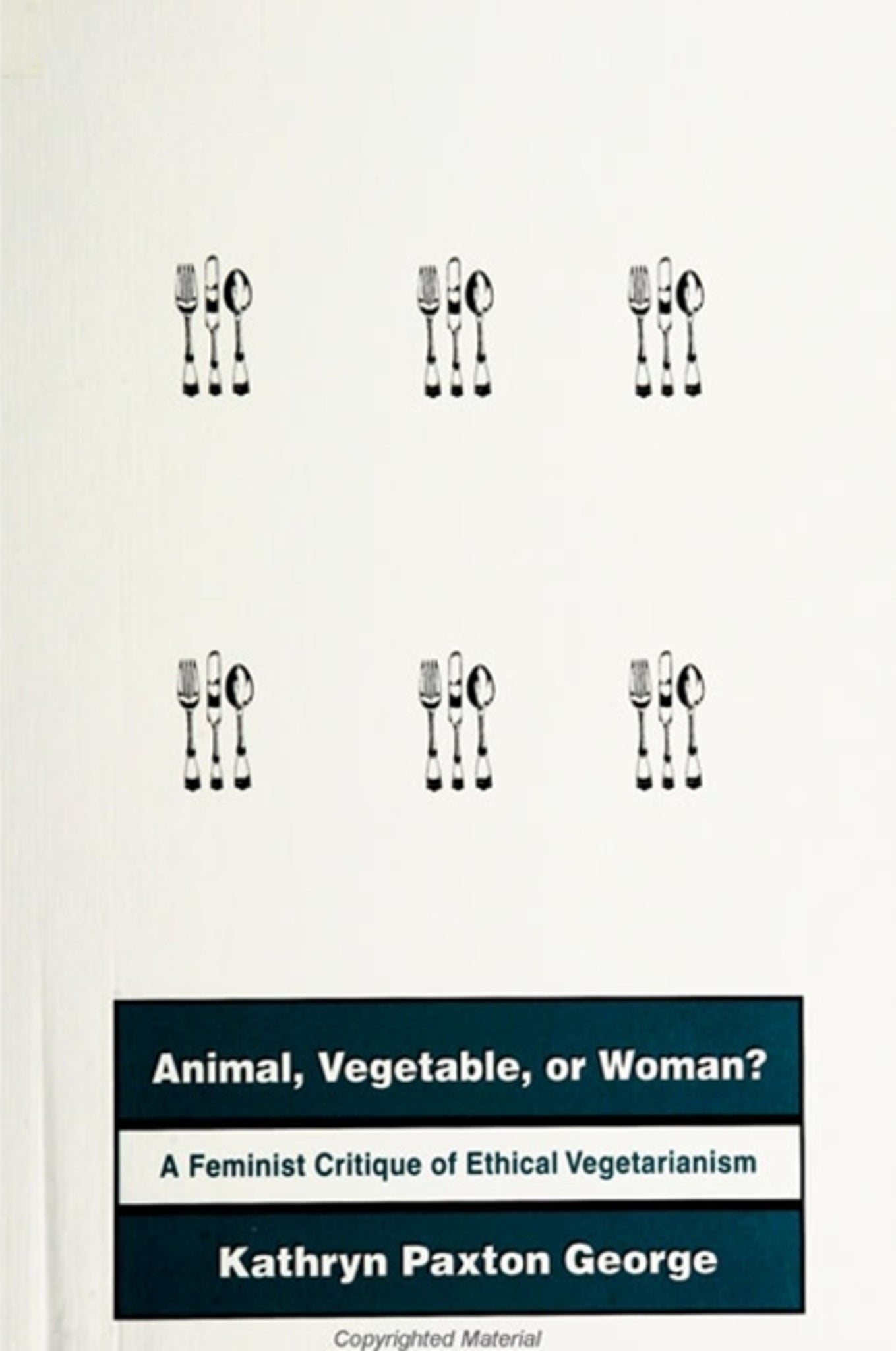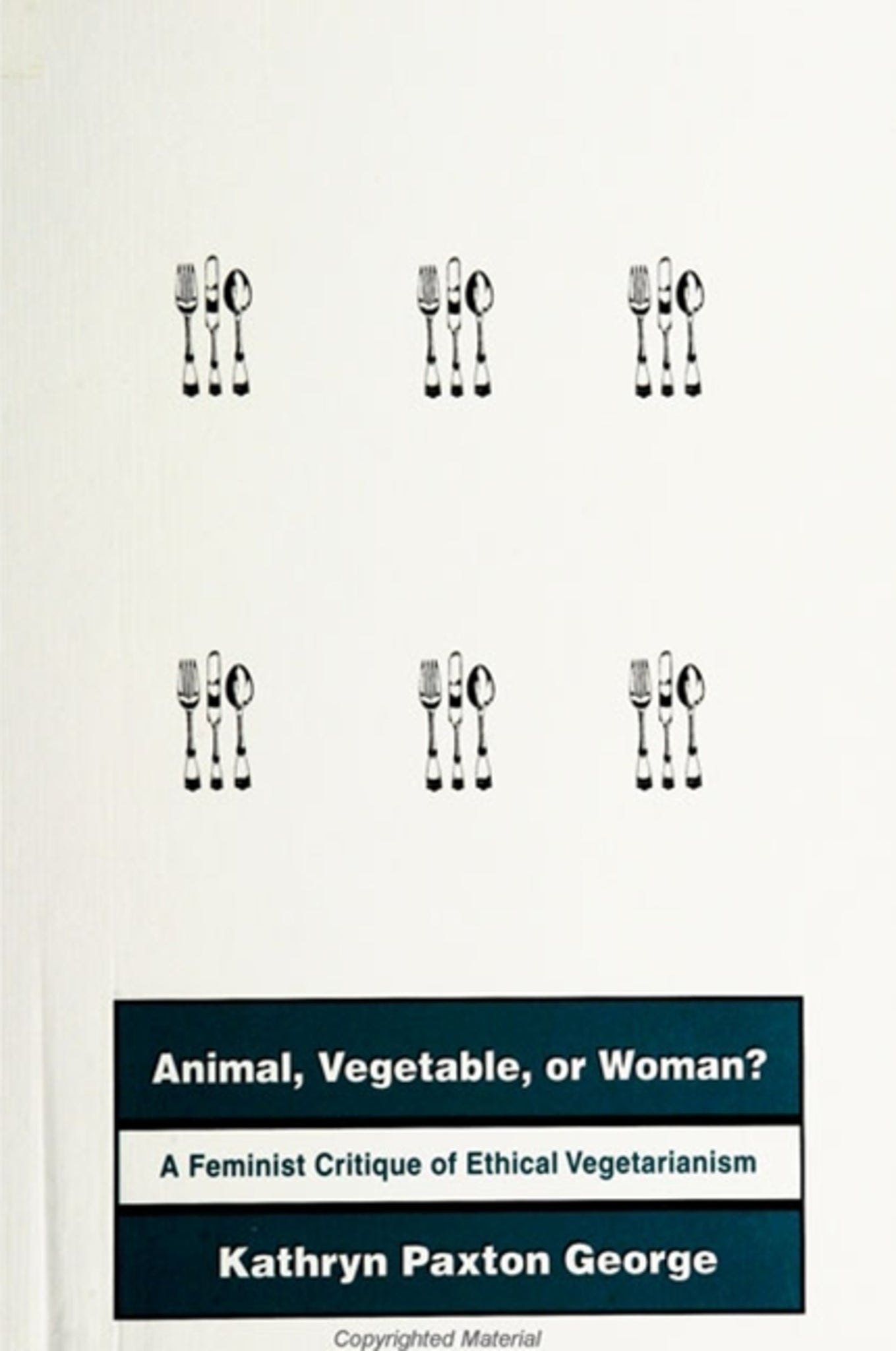We're sorry. An error has occurred
Please cancel or retry.
Animal, Vegetable, or Woman?

Some error occured while loading the Quick View. Please close the Quick View and try reloading the page.
Couldn't load pickup availability
- Format:
-
12 October 2000

Challenges current claims that humans ought to be vegetarians because animals have moral standing.
Kathryn Paxton George challenges the view held by noted philosophers Tom Regan and Peter Singer and ecofeminists Carol Adams and Deane Curtin who assume the Principle of Equality to argue that no one should eat meat or animal products. She shows how these renowned individuals also violate the Principle of Equality, because they place women, children, adolescents, the elderly, and many others in a subordinate position. She reviews the principal arguments of these major ethical thinkers, offers a detailed examination of the nutritional literature on vegetarianism, and shows how this inconsistency arises and why it recurs in every major argument for ethical vegetarianism. Included is her own view about what we should eat, which she calls "feminist aesthetic semi-vegetarianism."


"George has presented original, often compelling, arguments against ethical vegetarianism. Relying on well-researched evidence of nutritional and material differences among humans based on age, gender, race, class, and cultural location, George shows respects in which current arguments for vegetarianism falsely presuppose a male physiological norm and ideal. This book is necessary reading for animal rights advocates, feminists, ethicists, or anyone else interested in interconnected health and ethical issues concerning vegetarianism." — Karen J. Warren, author of Ecofeminist Philosophy: A Western Perspective on What It Is and Why It Matters
"This broadly provocative book should be controversial, worthy of being attacked on several fronts. It is central to two large topics: feminist philosophy and the moral status of animals. It will not be the last word on any of the controversial issues that it touches upon, but it is unequivocally the next word." — Paul B. Thompson, author of Food Biotechnology in Ethical Perspective
Preface
Acknowledgments
1. Introduction
Vegetarianism and the Ideal Life
A Note about Terms and Studies of Vegetarians
Some Arguments Not Covered
Overview of the Argument of the Book
2. Ethical Vegetarianism and Traditional Moral Theory
The Resurgent Interest in Ethical Vegetarianism
Defining the Moral Community
The Rule-Based Egalitarian Moral Tradition
Why Vegetarianism is Morally Required
Traditional Problems with the Traditional Moral Theories
Traditional Virtue Ethics
3. Feminism and Ethical Vegetarianism
"First-Wave" Feminists and Ethical Vegetarianism
Recent Feminist Criticisms of the Rule-Based Tradition
Other Features of Feminist Ethics of Care
Feminist Epistemology and the Moral Standings of Animals
Tom Regan's Rejection of Feminist Epistemology
Some Criticisms of Regan's Defense of a Rationalistic Epistemology
Ecofeminist Vegetarianism
4. A Feminist Argument Against Ethical Vegetarianism
How Traditional Moral Theory Fails
The Male Physiological Norm
The Cultural Norm of Wealth
Counterbalancing Considerations
Discrimination and the Predication of Fixed Norms
The Logic of Domination
Summary
5. Bias, Reasoning, and Scientific Studies
Introduction
Bias
Mistakes of Reasoning
6. Gender Equality and Interspecies Equality
Do Physiological Differences Require Inequality?
The Minimum Conception of Feminist Ethics
Equality and Difference
Interspecies Equality
7. Feminist Aesthetic Semivegetarianism
Overview
Contextual Moral Vegetarianism Revisited
Weaknesses of Contextual Moral Vegetarianism
Feminist Aesthetic Semivegetarianism
Contexts for Eating
Summary
Notes
References
Index



